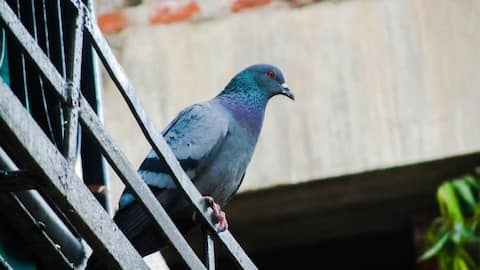How pigeon exposure can severely harm your lungs
What's the story
Pigeons may appear harmless, but their droppings and feathers can lead to serious lung problems with repeated exposure. Doctors have warned that simple measures like careful cleaning and avoiding contact can prevent long-term damage. The fine dust from these droppings and feathers can trigger hypersensitivity pneumonitis, a serious lung condition that gradually scars the lungs and makes breathing difficult over time.
Health risks
More and more Indians are falling ill due to pigeons
Dr. Ravindra Sanglikar, consultant pulmonologist at KIMS Hospitals in Mumbai, told Moneycontrol that pigeons pose serious health risks. He said that every year more and more Indians fall ill due to repeated exposure to pigeons. The symptoms of lung scarring include cough, breathlessness, chest discomfort, or extreme tiredness. If left untreated, this can lead to permanent lung damage and even respiratory failure.
Flu-like symptoms
Even healthy people aren't completely immune to the effects
Dr. Gunjan Chanchalani, Director of Critical Care Medicine at Wockhardt Hospitals in Mumbai, told Moneycontrol that even healthy people aren't completely immune to the effects of pigeon exposure. According to her, short-term exposure may cause flu-like symptoms such as fever, chills, cough, or breathlessness in some people. Prolonged contact could lead to chronic respiratory illnesses and long-term lung damage.
Vulnerable groups
Immunocompromised individuals at greater risk; need for awareness
Immunocompromised individuals or those with pre-existing lung conditions are particularly vulnerable to the health risks posed by pigeons. Dr. Chanchalani advised people with recurrent respiratory symptoms, unexplained fatigue, or decreased exercise tolerance to mention their exposure to pigeons while consulting a doctor. Both experts stressed the need for greater awareness about this under-recognized risk and simple protective measures can go a long way in preventing serious damage.
Health conditions
Here's how pigeon exposure can harm your lungs
Dr. Sanglikar explained that repeated exposure to pigeons can trigger bird fancier's lung, a condition that causes immune reactions in the lungs. This leads to inflammation, breathlessness, and potentially lung fibrosis. He also warned about fungal infections like histoplasmosis or cryptococcosis found in pigeon droppings that can cause serious infections, especially in people with weakened immunity.
Precautions
Simple protective measures can help you stay safe
To protect yourself from these health risks, Dr. Sanglikar advised never handling pigeon droppings or nests with bare hands. "Gloves and masks are essential for cleaning areas where pigeons gather," he said. He also suggested washing hands thoroughly after any cleaning to prevent respiratory exposure. Dr. Chanchalani stressed the importance of careful cleaning and avoiding dry sweeping that stirs up dust hazardous to lungs.
Prevention strategies
Consider sealing access points where pigeons might nest
Dr. Sanglikar suggested sealing access points where pigeons might nest with bird spikes, mesh screens, or nets to keep them away from living spaces. He also stressed the importance of seeking medical advice quickly if you notice breathlessness, ongoing fatigue, or frequent coughing. This could help in early diagnosis and treatment of lung conditions related to pigeon exposure, preventing permanent damage.
